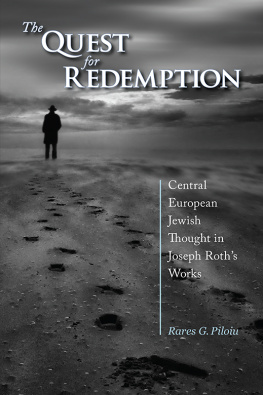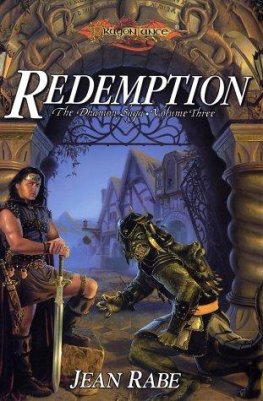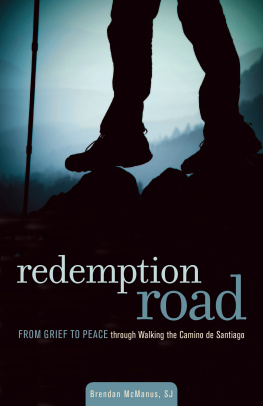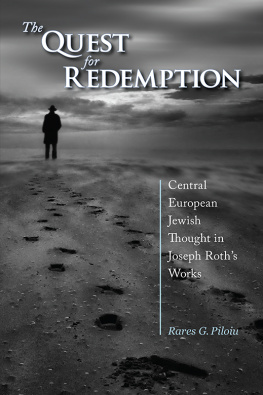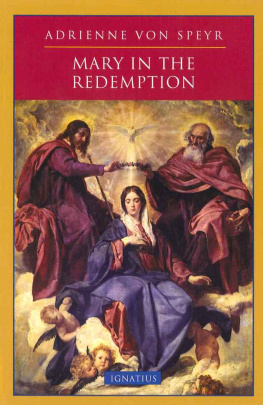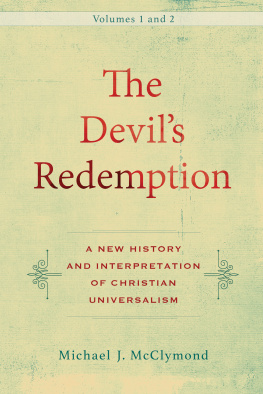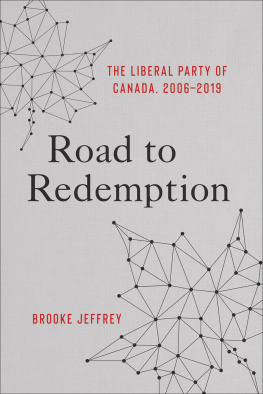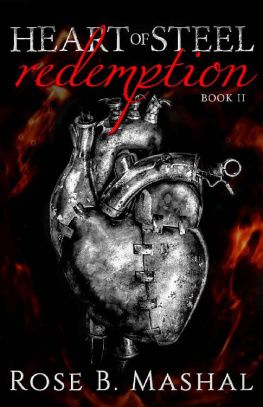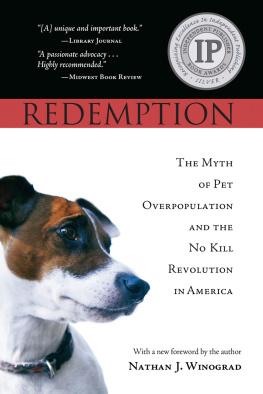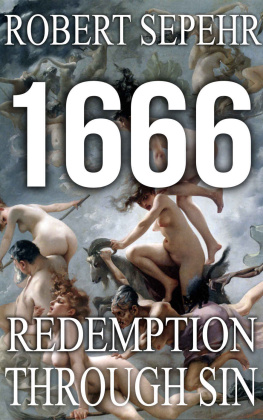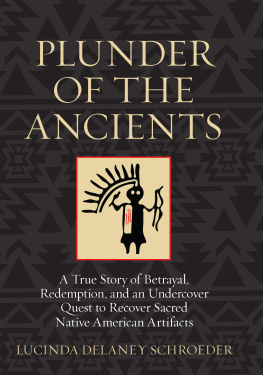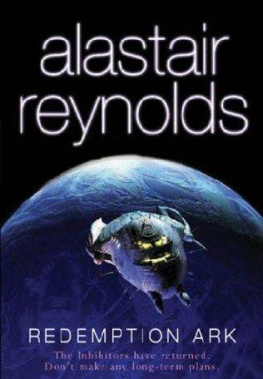Piloiu Rares G. - The Quest for Redemption
Here you can read online Piloiu Rares G. - The Quest for Redemption full text of the book (entire story) in english for free. Download pdf and epub, get meaning, cover and reviews about this ebook. publisher: Purdue University Press, genre: Romance novel. Description of the work, (preface) as well as reviews are available. Best literature library LitArk.com created for fans of good reading and offers a wide selection of genres:
Romance novel
Science fiction
Adventure
Detective
Science
History
Home and family
Prose
Art
Politics
Computer
Non-fiction
Religion
Business
Children
Humor
Choose a favorite category and find really read worthwhile books. Enjoy immersion in the world of imagination, feel the emotions of the characters or learn something new for yourself, make an fascinating discovery.
- Book:The Quest for Redemption
- Author:
- Publisher:Purdue University Press
- Genre:
- Rating:3 / 5
- Favourites:Add to favourites
- Your mark:
- 60
- 1
- 2
- 3
- 4
- 5
The Quest for Redemption: summary, description and annotation
We offer to read an annotation, description, summary or preface (depends on what the author of the book "The Quest for Redemption" wrote himself). If you haven't found the necessary information about the book — write in the comments, we will try to find it.
The Quest for Redemption — read online for free the complete book (whole text) full work
Below is the text of the book, divided by pages. System saving the place of the last page read, allows you to conveniently read the book "The Quest for Redemption" online for free, without having to search again every time where you left off. Put a bookmark, and you can go to the page where you finished reading at any time.
Font size:
Interval:
Bookmark:

Comparative Cultural Studies
Ari Ofengenden, Series Editor
The series examines how cultural practices, especially contemporary creative media, both shape and themselves are shaped by current global developments such as the digitization of culture, virtual reality, global interconnectedness, increased people flows, transhumanism, environmental degradation, and new forms of subjectivities. We aim to publish manuscripts that cross disciplines and national borders in order to provide deep insights into these issues.
Central European Jewish Thought
in Joseph Roths Works
By Rares G. Piloiu
Purdue University Press
West Lafayette, Indiana
The saint lives in the world. He does not reject it.
Max Brod, Paganism, Christianity, Judaism: A Confession of Faith
Copyright 2018 by Purdue University. All rights reserved. Printed in the United States of America.
Cataloging-in-Publication Data is on file at the Library of Congress.
Paperback ISBN: 978-1-55753-830-7
ePub ISBN: 978-1-61249-550-7
ePDF ISBN: 978-1-61249-549-1
Cover image: Yvette Depaepe
The argument for writing a study on Joseph Roth has first of all a personal motivation. I was born and raised in Eastern Europe, and my family roots reach into the multicultural world of the former Habsburg Empire, a world that constitutes the background for much of Roths work. Spending holidays with my mothers side of the family in Transylvania, I grew accustomed to hearing a mlange of languages, including Romanian, Hungarian, and German, imperceptibly melting into each other as the need required in a harmonious coexistence of what later I understood to be the specificity of Mitteleuropa. I would not want to idealize this notion, whose historical avatars carry an ambiguous legacy, but I do want to draw on my personal interest for it, an interest stimulated in part by personal experience and in part by literary experience. Crossing the Carpathians each summer and winter had something ritualistic and purifying about it, and this was not simply due to the sacred nature of the religious holidays that marked my childhood visits into Transylvania or to the warmth of our familys reunions. There was something objective about it that I could feel while still on the train, a type of permanence embedded in the mild rolling hills of the countryside, in the almost dull reappearance of similar towns and villages densely built around ancient church steeples, and in the obstinately slow rhythm in which everything seemed to move. For me, as for a Hans Castorp of another era and geographical location, crossing the Carpathians from the flatlands was like moving from an ugly and omnipresent history (it was, after all, Nicolae Ceausescus 1980s Romania) to a place outside of history, a magical realm under the rule of eternity. There, more powerful than history, tradition left its indelible mark on everything. Later in life as I read Roths novels of Austrian inspiration of the 1930s, I could almost immediately relate to his fascination with the permanence of the Habsburg world at a time when history had started to show its hideous and inhumane face. His recollection of the smells, sounds, and sights that repeated themselves in a dizzying kaleidoscope everywhere one went awoke in me similar feelings of familiarity and reassurance. If cultures have a spirit of their own that defies politics, history, and territorial partitions, as the Hungarian Jewish writer Gyrgy Konrd claims, then the spirit of Central Europe that Roth depicted in his writings was definitely the same one that marked some of my strongest childhood memories.
The image of Central Europe that emerges from the works of other authors who influenced me, such as Ingeborg Bachmann, Milan Kundera, and Peter Esterhzy, is also, as I later learned, influenced significantly by Roths fiction. The indebtedness of many modern Central European writers (and not only European if one takes into consideration the admissions of Nadine Gordimer and J. M. Coetzee) to Roths nostalgic depiction of imperial Austria reinforced my curiosity about Roth, especially the fact that his work took on a distinct political meaning in the 1970s and 1980s. In the years succeeding the defeat of the Prague Spring of 1968, the phrase Central European literature represented an intellectual protest against a grim historical reality dictated by the stern partition of Europe between West and East. At the same time, the tragedy of Central Europe, which Kundera decried in his famous 1984 article, started to be associated with the tragedy of Central European Jews, of which the Austrian Joseph Roth was one. Kundera, but also Konrd, saw in the Central European Jewish cultural model the embodiment of everything Central Europe stood for: tolerance, tradition, moderation, and respect for culture and education. Reviving the memory of that Jewish world, a world vanished in the tumult of a murderous and impatient history, became synonymous with restoring the memory of that part of Europe that was too easily wiped out in the conflict between the western and the eastern parts of the continent. In the politically charged atmosphere of the 1980s, Central Europe even represented for some an alternative to the political divisions between East and West, the culture of peace and denuclearization, and the end of ideologies. I later realized that assigning Central Europe a quasi-utopian role, mediating between the spirit of the West (technology) and that of the East (ideology), was not a new trope. Roth had also depicted Habsburg Austria as well as the traditional life of Central European Jewry in utopian colors in order to create an alternative to what during the 1920s and 1930s appeared to be the irreconcilable forces confronting each other in Europe: on the one hand the bourgeois individualist model and on the other hand the fascist and communist collectivist one. Like many Jewish intellectuals of his time, Roth was interested in articulating an idea of redemption that allowed the Jewish identity and the modern human condition in general to reconcile themselves with a tragic history and even to sow the seeds of a future emancipation.
The search for redemption carried out by an entire generation of Central European Jewish intellectuals who came of age in the first quarter of the twentieth century represents one of the major paradigms within which modern Jewish intellectual history manifested itself. This search testifies to not only the historical difficulties encountered by European Jews at the time of a crucial moment in their history but also the synthetic power of their political imagination, their central locality within the German culture, and their revaluation of the Judaic religious heritage that their parents generation had almost forgotten. Roth dedicated his energy and literary imagination to developing this idea of redemption. In more than fifteen novels and countless journal articles, essays, and short stories he addresses some of the thorniest problems encountered by the modern individual, from political disillusionment to moral paralysis and from social estrangement to historical dissolution. For Roth, as for many members of his generation, the solution to even the most mundane problems lies in a profoundly moral, quasi-religious relation with the world, which he tries to reconstruct piece by piece starting from the negative consciousness of the redemptive dimension of human existence to its positive, unequivocal affirmation. His social, religious-existentialist, and historical novels reassert in one form or another the necessity for a reunification of
Font size:
Interval:
Bookmark:
Similar books «The Quest for Redemption»
Look at similar books to The Quest for Redemption. We have selected literature similar in name and meaning in the hope of providing readers with more options to find new, interesting, not yet read works.
Discussion, reviews of the book The Quest for Redemption and just readers' own opinions. Leave your comments, write what you think about the work, its meaning or the main characters. Specify what exactly you liked and what you didn't like, and why you think so.

